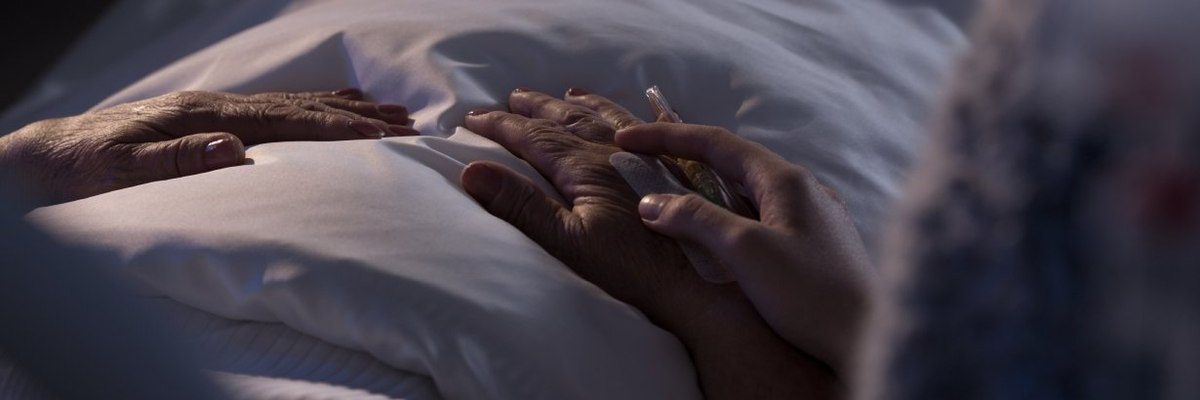The public tell us in their own words
With MPs set to vote on a new assisted dying law on Friday, a recent YouGov poll has found three quarters (74%) are, in principle, in favour of legalising the practice, with only around one in eight (13%) opposed.
These numbers only tell part of the story, however. For a more detailed look at people’s views, our survey also asked the public to tell us why they come down on their respective sides of the argument.
The results were analysed by YouGov qualitative researchers using our AI-powered insights tool Yabble, which identifies common themes, sub-themes and sentiment in the responses, themes and sentiment in the open-end responses. This allows us to collect, analyse and report a broad range of voices in a fraction of the time and manual effort such complex studies would usually require.
Why do people support assisted dying?
A top theme emerging from the verbatim results is that a significant number of people frame their reasons for supporting assisted dying around personal autonomy.
“Though I am pro-life, I believe a person should be in control of THEIR body, not including if they are carrying a body inside them, and if they are in their right mind want to die they should be able to do so with dignity and do it legally.”
“Allow terminally ill people to take control of a situation they would otherwise be powerless in”
Amongst these comments are concerns about being compelled to suffer for someone else’s view or beliefs, and therefore reducing individual agency in the matter.
“Quality of life is important - no-one should force another person to endure when life has become intolerable, or oppose their decision to opt-out”
“Suffering is dreadful. Those with religious beliefs should not impose their ideals on others who do not share their religion.”
Many also bring up the alleviation of suffering as a reason for their willingness to see assisted dying laws introduced.
These open-ended responses are peppered with personal testimonies from those who have witnessed what they perceive to be unnecessary suffering first hand. Many also make reference to how we euthanise pets and other animals in the final days of their lives and believe this should apply to humans too.
“Because if it was me and I was dying of cancer I would like to pick the time and date of my death, I watched my mother and mother in law die of cancer and it’s not a pretty sight.”
“We keep people alive who really don't want to suffer anymore. We put animals in pain down, the same should happen to humans, especially those who are terminally ill and want a dignified ending. My father had cancer and wanted to end the pain he suffered and the indignity of wetting and soiling himself. It was awful for him to have to live like that wishing he was dead but could do nothing about ending the pain, suffering and indignity.”
“Some people may find themselves in a position where they would suffer over a prolonged time. If a pet is in that condition, we might choose to end its suffering. So why not offer that choice to humans?”
For some, the suffering is doubly pointless because of the additional burden it places on the system and the cost of the treatment given.
“Many people suffer unnecessarily, depressed, lonely, isolated and unable to take care of themselves. If they are ready to move on, they should be allowed to do so. Beyond the morals, it would relieve pressure on social care and save the NHS money.”
Why do people oppose assisted dying?
Amongst the 13% of the public who do not support assisted dying there is a concern about exploitation or coercion – that the terminally ill would be persuaded by their loved ones to agree to end their lives, perhaps for financial gain.
“Because vulnerable people will feel obligated to end their lives if there are unscrupulous relatives”
“Our governments consistently deprioritise quality of life in favour of cost savings, so I expect that people will be pushed to die”
Tied with this is a broader concern of this legislation being the ‘thin end of the wedge’ and leading to a society in which such a practice is actively encouraged.
“Coercion is going to be a problem and proposed conscience clauses are inadequate. Thirdly, it is almost inevitable that further steps towards compulsory or at least strongly encouraged euthanasia will follow.”
With politicians currently rowing about whether opposing assisted dying on religious grounds are imposing their beliefs on others, ethical and religious concerns are also mentioned by some Britons.
“Morally I think this is the equivalent of murder or suicide, life is not ours to give and take”.
“I believe that only God has the right to decide when a life should end.”
See analysis of our full survey on public attitudes towards assisted dying here
What do you think about assisted dying in principle, whether it can be implemented properly, and everything else? Have your say, join the YouGov panel, and get paid to share your thoughts. Sign up here.
Photo: Getty








